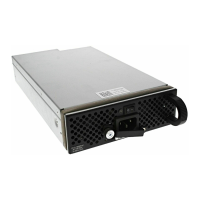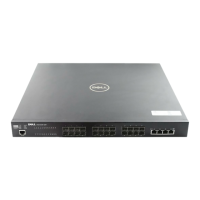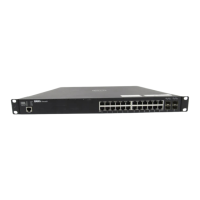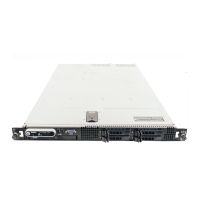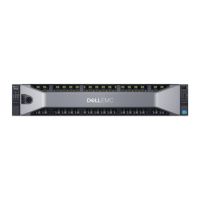294 | Link Aggregation Control Protocol (LACP)
www.dell.com | support.dell.com
To view the status of a failover group member, use the show interface port-channel command (Figure 16-9).
Figure 16-9. Viewing Status of a Failover Group Member
Important Points about Shared LAG State Tracking
• This feature is available for static and dynamic LAGs.
• Only a LAG can be a member of a failover group.
• You can configure shared LAG state tracking on one side of a link or on both sides.
• If a LAG that is part of a failover group is deleted, the failover group is deleted.
• If a LAG moves to the down state due to this feature, its members may still be in the up state.
LACP Basic Configuration Example
The screenshots in this section are based on the example topology shown in Figure 16-10. Two routers are
named ALPHA and BRAVO, and their hostname prompts reflect those names.
The sections are:
• Configuring a LAG on ALPHA
• Summary of the Configuration on ALPHA
• Summary of the Configuration on BRAVO
Note: The set of console messages shown in Message 1 appear only if you configure shared LAG state
tracking on that router (you can configure the feature on one or both sides of a link). For example, in
Figure 16-8, if shared LAG state tracking is configured on R2 only, no messages appears on R4 regarding
the state of LAGs in a failover group.
FTOS#show interface Port-channel 2
Port-channel 2 is up, line protocol is down (Failover-group 1 is down)
Hardware address is 00:01:e8:05:e8:4c, Current address is 00:01:e8:05:e8:4c
Interface index is 1107755010
Minimum number of links to bring Port-channel up is 1
Port-channel is part of failover-group 1
Internet address is not set
MTU 1554 bytes, IP MTU 1500 bytes
LineSpeed 1000 Mbit
Members in this channel: TenGig 1/17(U)
ARP type: ARPA, ARP Timeout 04:00:00
Last clearing of "show interface" counters 00:01:28
Queueing strategy: fifo

